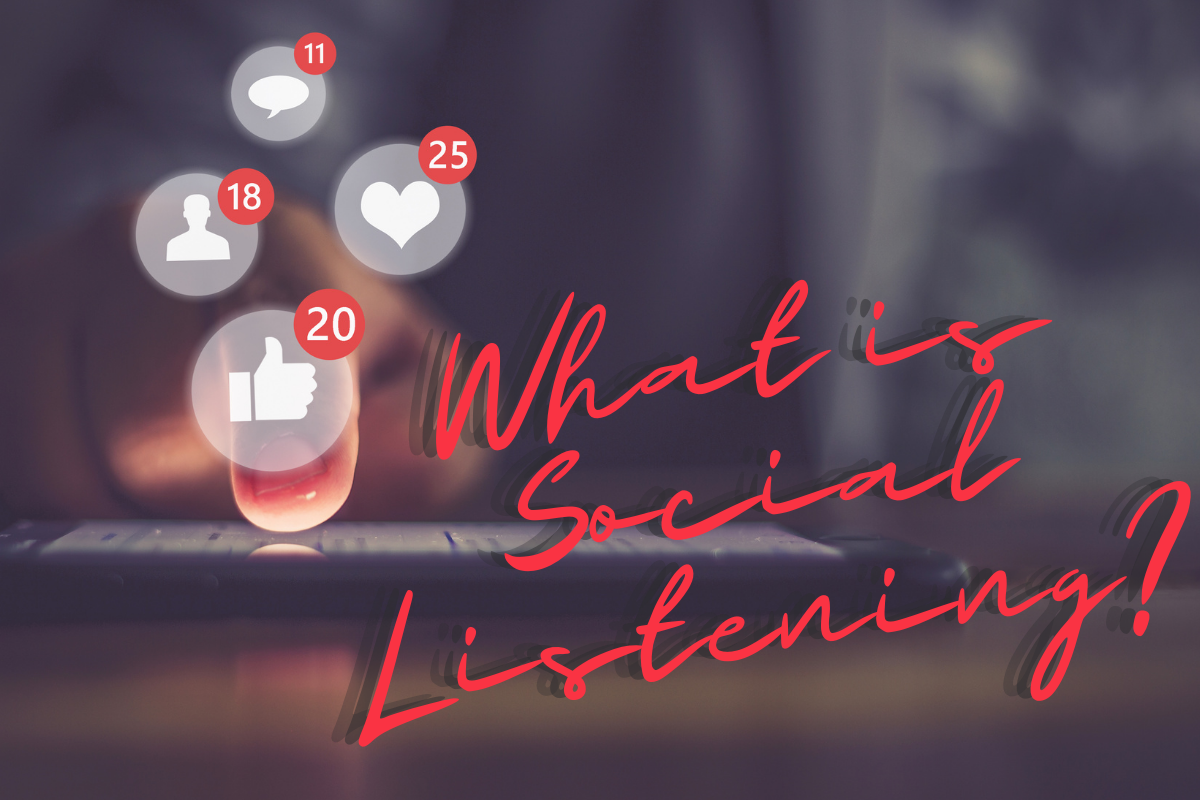Social listening is one of the newest buzzwords in digital media, and there is a good reason for that. It gives businesses the chance to track, analyze, and respond to conversations about them on social media platforms – and it provides a valuable opportunity for audience research.
So what is social listening? It’s when you track your social media pages for mentions, tags, or conversations about your brand. Then, you analyze this information to learn about your audience and put this knowledge into action. This can be as small as being more responsive to positive customer feedback, to altering an entire ad campaign that’s rubbing people the wrong way.
While this may sound an awful lot like social media monitoring (SMM), it is actually different in some important ways. SMM focuses on metrics, like how many mentions you’ve received or what kind of trends your industry is seeing, and collecting data on these metrics. SMM is great for doing A/B testing, or monitoring ROI.
But when you take this data and use it to make changes to your campaigns or branding, you’re using social listening. You can even dig back into data from past weeks, months, or years to track how the conversation around your brand has changed over time. Understanding how people feel about your brand allows you to make changes that benefit your audience, raising brand sentiment and customer loyalty.
Here are a few different specific ways that social listening can benefit your business.
Engage with Customers
Social listening gives you a change to engage with your customers about your products or services. This can be as simple as commenting on a positive feedback post, or helping someone find your customer service department. This helps to make your customers feel like you genuinely care about their experience with your product, and can help to boost engagement over time.
Manage a Crisis
Engagement can be good or bad – and it is vital that you address any negative sentiment as quickly as possible. From a botched delivery to an issue with your brand messaging, negative sentiment can quickly spiral and have a huge impact on your business. By keeping an eye on engagement with social listening, you can nip problems in the bud before they turn off current or potential customers.
Track the Competition
Proper utilization of social listening is more than just finding out what people are saying about you – it should also involve finding out what they are saying about your competitors. This will not only keep you up-to-date on what kind of advertising campaigns they are running, or what new products they are selling, it can also give you a window of opportunity to address the concerns of their customer with new campaigns of your own.
Find Customer Pain Points
It isn’t enough to only know what is working for your customers – you should also take the time to find out what isn’t working for them. Social listening can find trends in customer dissatisfaction, which you can then (ideally) address. It may be a task as simple as tweaking a product listing page, adding a new feature, or retaking product photos that resolves an issue.
Discover New Leads
Social listening doesn’t just give you a change to interact with existing customers – it also opens up another opportunity to find new leads. When you interact with customers, you establish yourself as a company that cares about the experiences that people have with their products. And when other online users will see the conversation, it can spark an interest in what you have to offer. Share helpful information, reach out to customers, and make connections with new people. This will help people view you as an expert in your industry, and make your products more appealing.
How to Get Started With Social Listening
Effective social listening starts with knowing what you are listening for, which means choosing the most relevant keywords for your business. Not sure where to start? Here is a good list to get started:
- Your brand name, social media handles, and slogan
- Your product names
- Your competitors’ brand names, product names, handles, and slogans
- Industry-related buzzwords
- Names of key people in your company and your competitors’ companies
- Campaign names, tags, or keywords
- Any branded hashtags you or your competitors use
- Unbranded hashtags related to your products/business/industry
While there are online platforms out there with paid services that track social listening for you, they aren’t a requirement for a solid campaign. Depending on what social media platforms you are focusing on, it can be as easy as following your keywords, or setting up reminders to do a daily or weekly search. What matters is consistency, and a willingness to engage with your customers in a genuine and helpful way.
